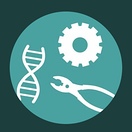About the Biomedical Automation Network:

The Biomedical Lab Automation (BLA) network aims to coordinate and maximize the potential of the University’s automation resources with a special focus on the novel low cost and widely customizable new robotic equipment and facilities. The multidisciplinary network will support meetings, host visiting experts and organize workshops and trainings applied for biological, medical and health sciences.
About the Digital Microfluidics Biohackathon
We are happy to be organizing our next Biohackaton workshop where participants will have the opportunity to work in small teams and use the latest digital microfluidics automation tools in collaboration with experts in the field to discuss their potential for automating their protocols,
The details of the event are as follows:
Date: Wednesday 4th of December from 10 am to 4 pm
Maximum number of places: 20
Registration link: https://www.eventbrite.co.uk/e/digital-microfluidics-an-enabling-technology-for-lab-automation-tickets-76792090209
Location: Murchison House G.07 – Teaching Studio
Sponsors: SynthSys and Digo.bio
Detailed info about the Workshop
Traditional experimentation in a biology lab has predominantly remained manual and faces challenges with respect to reproducibility of findings, limited scope of experimental design and reduced throughput. To solve this, there are a number of tools in the market for researchers to automate biological experimentation. These range from liquid handling robots like the Opentrons using automated pipettes to more expensive and higher throughput platforms like Labcyte which uses acoustic liquid transfer. These platforms are useful and offer features at different price points ranging from a few thousand dollars to hundreds of thousands of dollars.
A less well known technology which can also be used to automate molecular biology workflows is digital Microfluidics or DMF. DMF works using Electrowetting On Dielectric (EWOD) where small droplets ranging from a few picolitres to milliliters can be controlled and moved along a surface of conducting electrodes using a sequence of activation and inactivation signals affecting the wettability of these droplets.
The simplicity of these actuation methods and the nature of this approach in controlling movements of droplets can allow a researcher to implement complex molecular biology workflows by simply defining a sequence of electrode actuation paths, therefore enabling an easy access to automation. Our experience with this technology as we built Digi.Bio’s desktop biofoundry has shown that a user employing DMF with additional integration of sensing and analytical methods can quickly close the loop to iteratively run the design, build, test and learn cycles in synthetic biology.
In this biohackathon style hands-on workshop, participants will be introduced to the what, the why and how of digital microfluidics. This will be followed by identifying automation challenges faced by the participants in their own laboratories and an introduction to how manual protocols can be translated into instructions necessary for automation using digital microfluidics.
By training participants on the key skills needed to work with digital microfluidics and providing access to our devices, cloud based protocol editors and a team whose expertise is in DMF, we will facilitate participants to explore if digital microfluidics is the best solution for their automation needs.
Sponsors: Digi.Bio
Digi.Bio is a digital biology company with a vision to make biology programmable. We build technology that allows highly controlled manipulation of droplets using electrowetting and digital microfluidics to implement complex lab workflows. Our technology requires no pumps, no complex chip designs; and employs programmable biochips where one chip can support many applications. Currently based in Amsterdam, Digi.Bio is a 2.5 year young company with a small team of motivated individuals. Our team has a diverse background spanning hardware, software and biology with a shared vision for making biology programmable.
Agenda
| 9:30 AM | Registration | |
| 10:00 AM | Introduction to the day | |
| 10:10 AM | Talk: What is DMF ? How to use it, Why is it important | |
| 10:50 AM | Biohackathon Structure and plan for the day | |
| 11:05 AM | Coffee Break | |
| 11:20 AM | Audience : Pitching protocols or problems to automate using DMF | |
| 11:50 PM | Talk: Introduction to Protocol Editor and Cloud account Setup | |
| 12:10 PM | Talk: Translating Manual protocols to Automation Ready protocols | |
| 12:30 PM | Lunch and break | |
| 13:00 PM | Audience: Audience breaks off into teams & work on their ideas using the DMF devices from Digi.bio | |
| 3:30 PM | Audience: Demo by all teams | |
| 4:00 PM | Audience: Debrief of the experience and next steps | |
| 4:15 PM | Info: Closing Remarks |
